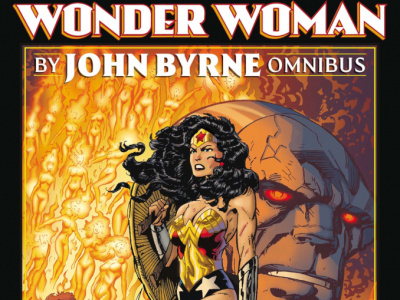
The surprise departure of The Walking Dead showrunner Frank Darabont, who championed the project, wrote and directed the pilot episode and oversaw production came just days after he had made a presentation about the series at Comic-Con (see “Walking Dead Bombshell”). Darabont has remained silent about the reasons for his departure, and the cast and crew have not commented on the record either.
But an excellent in-depth report in The Hollywood Reporter by Kim Masters puts The Walking Dead dispute in context as part of a trifecta of very public conflicts between the cable network AMC and its three highest profile series, Mad Men, Breaking Bad, and The Walking Dead. AMC, whose series collected more Emmy nominations than a dead armadillo attracts flies on a Texas roadside in August, is a relative latecomer to the world of critically-acclaimed original cable programming and its revenues have not caught up with the quality of its programming. According to THR, AMC costs distributors just about 26 cents for each subscriber per month versus the $1.08 that TNT gets or the 60 cents that USA receives.
AMC’s relatively weak revenue status in the world of basic cable is behind the protracted negotiations that delayed the start of the fifth season of Mad Men, which won’t air until well into 2012, even though the final episode of Season 4 was broadcast on October 17th of 2010. AMC has also been in protracted negotiations with the creators of Breaking Bad, the network’s other Emmy magnet. It looks like a deal will get done, but it’s still not finalized.
The situation with The Walking Dead is a little different since it is the only one of the three major series that AMC actually owns (the network financed the pilot for Mad Men, but sold the show to Lionsgate because of the expense of production, and Sony owns Breaking Bad). According to THR, AMC cut the budget for an individual episode of The Walking Dead from the $3.4 million cost in Season One to $2.75 million for each episode of Season Two. On top of the budget cut AMC also decided that for Season 2 the network would directly pocket the 30% Georgia State film credit rather than apply it to the budget to defray expenses as had been done in Season One.
The network told Darabont about these cuts before any episodes of Season One aired. According to THR those involved in producing the show felt that the enormous ratings success of the show would enable them to roll back at least some of the budget restrictions, but in June when production of Season Two began and they objected to the cuts, AMC’s head of original programming Joel Stillerman said “Ratings have no bearing on this conversation.”
AMC reportedly suggest spending half of each episode’s 8-shooting schedule in the studio and only half on location—a major departure from the way the first season was shot. While there are plenty of talented people still working on the series including The Walking Dead creator Robert Kirkman, makeup master Greg Nicotero, and new showrunner Glen Mazzara, who worked on The Shield, there certainly is no guarantee that the budget cuts won’t have a deleterious effect on the quality of Season 2.
Darabont was criticized for “taking a feature-film approach to television” in Season One, but there is no denying that his methods created a real hit. Mad Men and Breaking Bad are certainly extremely popular with the critics, and Mad Men averages 4.3 million viewers. But Breaking Bad only nets about 2.3 million, while The Walking Dead debuted with 5.2 million and its last show registered over six million sets of eyeballs while establishing a new record in the coveted 18-49 demographic for any drama show on basic cable.







